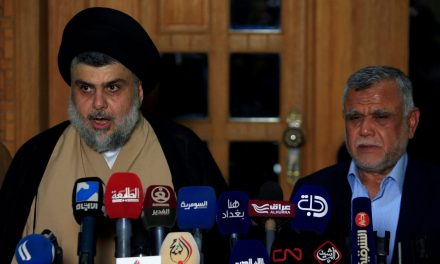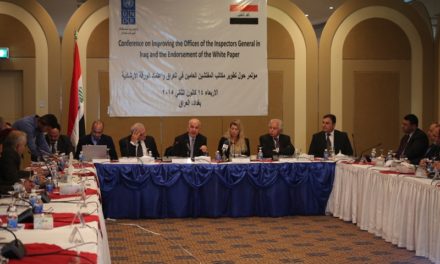On December 18, 2011 the world witnessed the last American soldier step on a plane and leave Iraq. After nine long years, the United States’ mission in Iraq was over, leaving behind a mammoth embassy in Baghdad and a couple of consulates in Basra and Erbil. Prior to this landmark, however, President Obama was hoping to keep up to 10,000 US soldiers stationed in Iraq, and the Iraqi government was agreeable to this. Failure of the Obama administration to reach a mutual agreement with the Iraqi government on keeping back any American troops resulted in every single soldier being withdrawn.
The withdrawal of American troops in Iraq left the door open for the Islamic Republic of Iran to expand its influence over Iraq. The United States sacrificed 4,489 troops, suffered 32,226 wounded soldiers, and spent over 1 trillion dollars, for President Obama to hand the Iranians a nation on a silver platter to have under their wing of increased influence.
The departure of American troops from Iraq meant that American boots would not hit Iraqi soil again unless American interests were at grave risk. So, in the summer of 2014, it was not until American interests in the Kurdistan Region were at direct risk, did President Obama order air strikes and American boots on Iraqi ground again. When ISIL overtook Fallujah in January of 2014 and Mosul in June 2014, the United States did not act, for they felt they had no interests in those areas. For the United States, points of interest in federal Iraq lie in their inflated embassy in Baghdad and in their consulate and oil contracts in Basra. These cities were not in danger for the United States to intervene.
Although no American ‘interests’ lie in Fallujah and Mosul, failure to act when these cities were being overtaken by ISIL was a careless decision by the Obama administration. Although no American personnel nor contracts were at risk, American political interests were, and America failed to see this as they allowed the opportunity for Iran to step in to lend Iraq the much needed helping hand.
With two major cities falling to ISIL, and with the US leaving them high and dry, Baghdad was in desperate need to combat the extremists. Tehran answered the call with military aid and leadership. Baghdad would henceforth be indebted to the Iranians for their assistance in their time of need. The bitter taste of American betrayal was not too unfamiliar to Baghdad. However, the sense of double standards, with the US rushing to help the semi-autonomous Kurdish region, was a difficult pill to swallow. This marked the point of major loss of influence by the Americans on federal Iraq, a region they spent time, blood and money securing influence over.
Had the United States acted upon Baghdad’s appeal for help, they could have prevented Iran from increasing their influence in the region and increased Iraqi reliance on America. Despite resistance to any military aid to Iraq post American troop pull-out, Americans find themselves back in Iraq with 3,000 troops and another 4,000 stationed in the region, ready for any eventuality. Although Americans are back on Iraqi soil once more, it is too little too late to halt Iranian influence in the country, with Iranian backed paramilitary forces leading the charge in defeating ISIL, with the Americans acting as virtual bystanders. Had the Americans come to an agreement with Iraq with regards to leaving troops back in 2011, this debate would not be taking place, as Americans would have been deployed the moment ISIL began their assault on Iraq. Americans would have taken the fight to ISIL quicker, stopping them dead in their tracks.
The United States could argue that it was the Iraqis’ fault for not allowing up to 10,000 American troops to remain in Iraq because they refused to grant them immunity, as President Obama had demanded. Sadly for the Americans, this is a failed argument because although Obama would not keep troops in Iraq without the Iraqi government granting them immunity, the Americans find themselves currently with 3,000 troops in Iraq and another 4,000 next door without immunity anyhow- similar troop numbers to what the Americans were requesting during the negotiations in 2011, with the same stipulations the Iraqis wanted. Failing to keep American troops in Iraq is a stain on President Obama’s presidential legacy and the argument of immunity is no longer valid to defend his failure to meet halfway with the Iraqi government during negotiations back in 2011. Furthermore, Obama missed the opportunity to correct things by responding quickly to the ISIL assault in Fallujah and later in Mosul, continuing to falter with his foreign policy by standing by as Iranians ran to aid Iraq.
Political analysts have come to the defense of American foreign policy in Iraq, claiming American inaction is due to the fact that Iran is a greater threat than ISIL. Had Americans assisted Iraqis earlier with defeating ISIL however, they would have prevented Iran from expanding influence and gaining strength. The situation in Iraq today is a domino effect of failures all originating with the US failure to keep troops in Iraq back in 2011.

Hamzeh Hadad
Hamzeh Hadad is an Iraqi writer and commentator.










